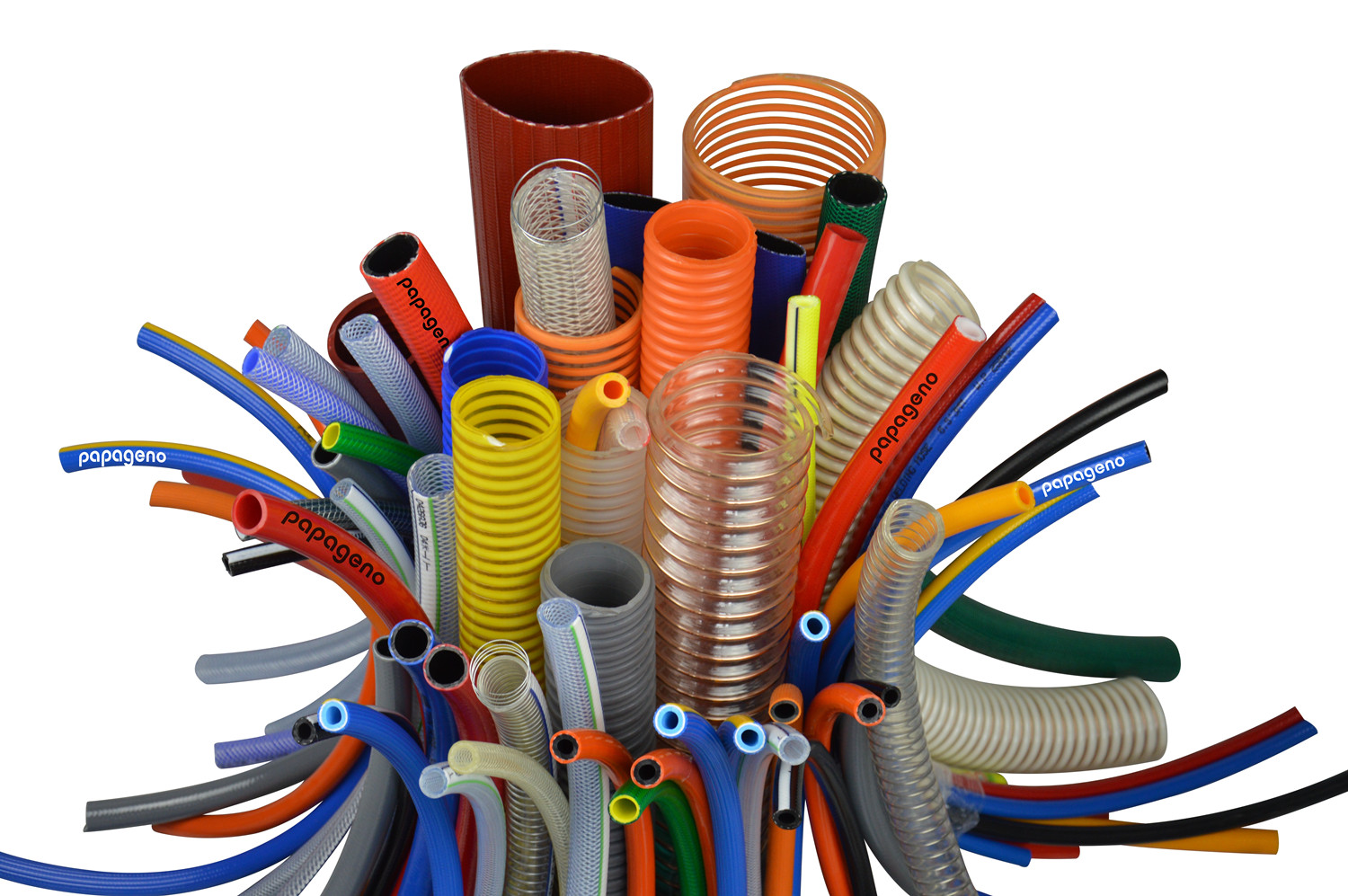Comparing PVC Hose to Other Hose Materials
- Categories:Industry News
- Author:Papageno Group
- Origin:Original
- Time of issue:2023-04-22
- Views:0
(Summary description)Hoses are a crucial element of any fluid transfer system, whether it's for industrial or domestic use. The choice of hose material can significantly impact the system's performance and longevity. Among the various materials used for hose production, PVC (polyvinyl chloride) is a commonly used material. In this article, we will compare PVC hoses to other hose materials and explore their advantages and disadvantages.
Comparing PVC Hose to Other Hose Materials
(Summary description)Hoses are a crucial element of any fluid transfer system, whether it's for industrial or domestic use. The choice of hose material can significantly impact the system's performance and longevity. Among the various materials used for hose production, PVC (polyvinyl chloride) is a commonly used material. In this article, we will compare PVC hoses to other hose materials and explore their advantages and disadvantages.
- Categories:Industry News
- Author:Papageno Group
- Origin:Original
- Time of issue:2023-04-22
- Views:0
Comparing PVC Hose to Other Hose Materials
Hoses are a crucial element of any fluid transfer system, whether it's for industrial or domestic use. The choice of hose material can significantly impact the system's performance and longevity. Among the various materials used for hose production, PVC (polyvinyl chloride) is a commonly used material. In this article, we will compare PVC hoses to other hose materials and explore their advantages and disadvantages.
PVC hoses are widely used due to their affordability, light weight, and flexibility. They can be used for a broad range of applications, from watering gardens to transporting chemicals in industrial settings. PVC hoses are also resistant to abrasion, chemicals, and UV rays, making them suitable for outdoor use.
On the other hand, rubber hoses are known for their durability and their ability to handle high-pressure applications. They are commonly used in hydraulic systems, where they can withstand extreme temperatures and harsh chemicals. Rubber hoses are also highly resistant to abrasion and corrosion, making them an ideal choice for industrial applications.
Another popular hose material is silicone, which is renowned for its excellent heat resistance. Silicone hoses are commonly used in high-temperature applications, such as in the automotive and aerospace industries. They are also highly flexible and have a longer lifespan than PVC hoses.
While PVC hoses are affordable and versatile, they do have some limitations. PVC is not as durable as rubber or silicone, and it can become brittle over time. This can lead to cracking and leaking, especially in cold temperatures. Additionally, PVC hoses are not suitable for high-pressure applications and may not be resistant to certain chemicals.
When choosing a hose material, it's essential to consider the specific needs of your system. PVC hoses may be the best option for low-pressure applications, such as watering gardens or for use in household appliances. Rubber hoses are best suited for industrial settings that require durability and resistance to abrasion and corrosion. Silicone hoses are ideal for high-temperature applications, where heat resistance is a critical factor.
PVC hoses are a popular choice due to their affordability, versatility, and resistance to chemicals and UV rays. However, they may not be the best choice for high-pressure or high-temperature applications. Rubber and silicone hoses are more durable and resistant to extreme conditions but may be more expensive. Ultimately, the best hose material for your needs depends on the specific requirements of your system.

PAPAGENO™ PVC Hoses
Scan the QR code to read on your phone
- +8613682102579
- 0086-22-28219672
-
0086-22-28219627
- info@papagenogroup.com
- No.306,Block B,Xiangnian Plaza,Hexi District,Tianjin,China 300222











